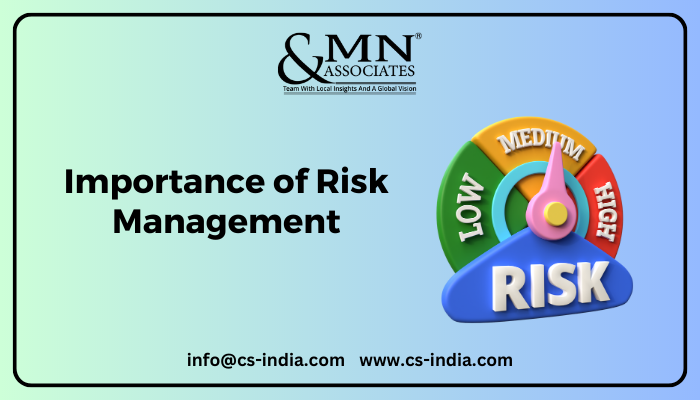Enhancing Business Efficiency Through the Importance of Risk Management
Enhancing Business Efficiency Through the Importance of Risk Management
Blog Article
The Important Relevance of Risk Management in Getting Business Goals
This is where Risk Management steps in, giving an organized method to recognizing, evaluating, and mitigating possible obstacles to advance. As we discover the critical role of Risk Management in accomplishing business goals, one can not wonder but help: how does this translate into real-world success?
Comprehending the Idea of Risk Management in Service

The Important Duty of Risk Management in Strategic Planning
Incorporating Risk Management into critical preparation works as a protect for organizations, securing their long-lasting strategies with a strong structure of preparedness and resilience. It operates as the company's radar, finding potential hazards and susceptabilities that could disrupt the course in the direction of achieving their stated purposes. Risk Management provides a framework for anticipating uncertainties and designing appropriate actions, making sure the company's survival and success even when faced with misfortune. By incorporating Risk Management into tactical preparation, companies can transform these unpredictabilities into chances for growth and advancement. This tactical interweaving of Risk Management cultivates flexibility, making companies extra durable and enabling them to browse the ever-changing service landscape with confidence. Risk Management comes to be an important tool in tactical preparation, crucial in safeguarding lasting success.

Techniques for Identifying, Assessing, and Prioritizing Dangers
The process starts with Risk identification, using tools such as SWOT analysis, which assists in identifying possible risks and possibilities. Next off, Risk evaluation is performed to ascertain the potential impact and probability of browse around here each Risk. Threats are focused on based on their possible impact and chance, enabling companies to concentrate their sources on high-priority dangers.
Safeguarding Business Workflow Via Efficient Risk Management
In the company landscape filled with uncertainties, reliable Risk Management plays a critical role in protecting business operations. By identifying and examining possible dangers, Risk Management allows organizations to establish durable contingency plans. Companies have to invest in detailed Risk Management approaches to guard their operations.

Converting Prospective Hazards to Opportunities: The Power of Risk Management
While possible threats could initially appear as barricades to organizational success, efficient Risk Management can change them into possibilities. A positive approach to risk Management entails identifying, evaluating, and focusing on threats to devise strategies that turn them into prospective benefits. This procedure demands the growth of a risk-aware culture within the organization, encouraging people to watch risks as prospective stimulants for adjustment and growth, instead of plain threats. importance of risk management. Via this lens, possible threats become chances to innovate, boost procedures, and reinforce visit here resilience. Thus, by leveraging the power of Risk Management, organizations can not just secure their operations but likewise spur development and accomplish their objectives in an uncertain business environment.
Situation Researches: Success Stories of Risk Management Driving Business Objectives
Effective application of Risk Management strategies has yielded remarkable outcomes in numerous organizations, highlighting the benefits of this approach. International companies like Microsoft and Google, for circumstances, have leveraged Risk Management to decrease hazards and make use of opportunities, driving their organization purposes ahead. These examples illustrate just how effective Risk Management can not only guide companies clear of prospective risks yet likewise direct them towards their critical purposes.
Final thought
In conclusion, Risk Management is fundamentally important in accomplishing organizational goals. By incorporating Risk Management right into calculated preparation, services can much better navigate uncertainties, protect operations, and capitalise on chances, consequently straightening with lasting objectives.
At its core, Risk Management is the process of determining, analyzing, and resolving possible hazards that could negatively influence a company's procedures or objectives. Next off, Risk analysis is click to investigate carried out to establish the prospective influence and chance of each Risk. Dangers are prioritized based on their possible impact and chance, allowing companies to focus their resources on critical risks. By recognizing and analyzing prospective hazards, Risk Management enables organizations to develop robust backup plans. An aggressive strategy to risk Management includes recognizing, assessing, and prioritizing dangers to create techniques that transform them right into prospective advantages.
Report this page